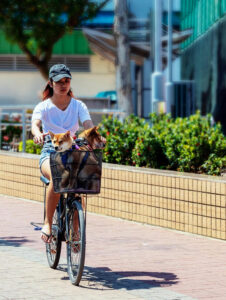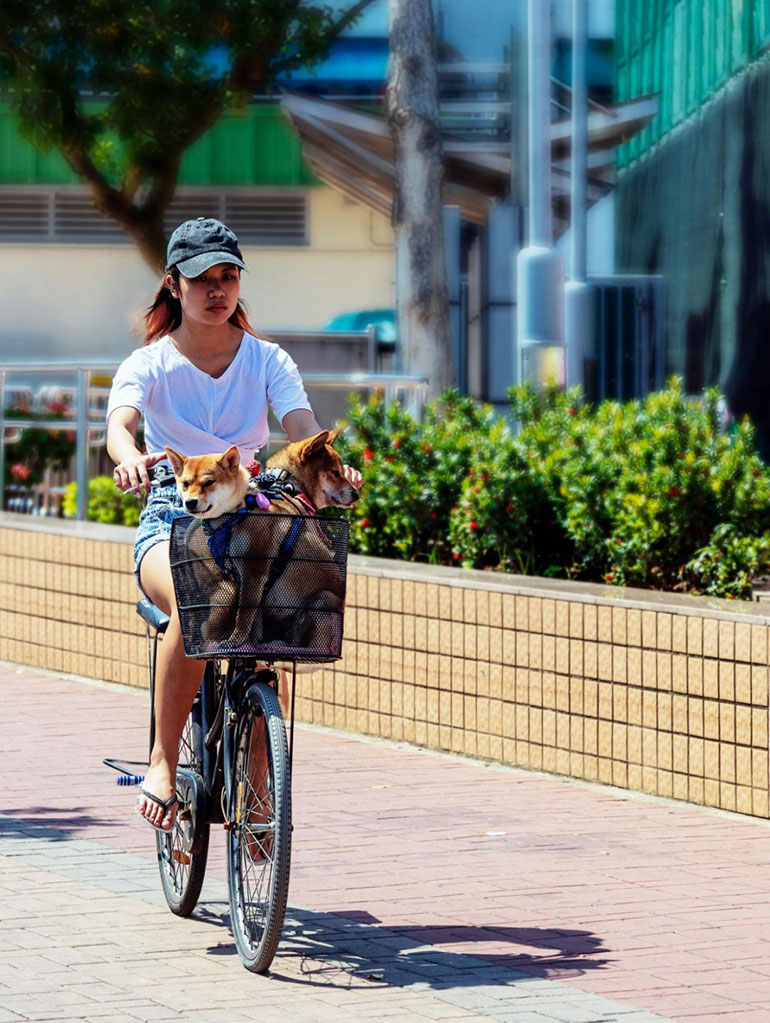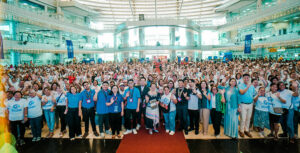
Everyday habits that warm the planet and how to address them

The Philippines faces more severe typhoon events, rising sea levels, and warmer temperatures each year. These natural hazards are further intensified by climate change, or the long-term shift in weather patterns.
The United Nations has noted that for the past 200 years, human activities have been virtually the major drivers of climate change, leading to global warming, or the rise of Earth’s average temperature, causing a range of more extreme weather conditions.
In this year’s 18th Global Warming and Climate Change Consciousness Week (CCC Week), the Climate Change Commission (CCC) encourages the public to rethink everyday habits that emphasize how responsible climate action can also begin at home.
- Bike or hike short distances
Science dictates that with more vehicles plying the streets, it leads to more burning of fuel, which releases carbon dioxide (CO₂) that accumulates in the atmosphere and traps heat. It only follows that one of the best ways to reduce carbon footprint is to use private vehicles only when absolutely necessary.
Besides opting for public transport, finding optimal carpool buddies and work-from-home arrangements, biking routes or hiking short distances can significantly lessen pollution and even improve health.
- Choosing plant-based meals and support local farmers

According to a UN guide on plant-based food, switching to this kind of diet reduces an individual’s annual carbon footprint by up to 2.1 tons with a vegan diet, or up to 1.5 tons for vegetarians.
Filipinos are at least starting to entertain the idea of this shift. In 2025, Tokyo-based research company GMO Research published a study which found that 85% Filipinos prefer food establishments to serve more plant-based options.
While it’s understandably challenging to change a regular diet overnight, easing into it by choosing at least one meal a week to plant-based foods can be a great way to get started. In addition, opting to incorporate a plant-based diet or more vegetables in meals can also help local farmers and producers.
- Energy efficiency at home

The nation’s power grid still relies heavily on fossil fuels, coal, oil, or gas. By choosing to reduce one’s usage of electronic devices at home, households can collectively reduce further pressure on the grid, which can lead to less carbon emission and, of course, lower electricity bills every month.
Some practical solutions include using LED lighting, turning off and unplugging unused appliances (including standby modes), and switching to renewable energy. Solar-powered small appliances such as electric fans, flashlights, and lighting are now available on the market even for the budget-conscious buyer.
- Reuse, upcycle, ukay-ukay
In Filipino culture, the act of hand-me-downs is an age-old tradition practiced from our elders down to the youngest of the family — sometimes even beyond. For many, this simple act is a meek manifestation of a circular economy in the household, or circular fashion.
The practice of ukay-ukay (derived from root: halukay or to dig up) is an entire industry altogether for secondhand clothing. In a published story by the World Bank, they cited it takes 3,781 liters of water to make a pair of jeans, from the production of cotton to the delivery of the final product to the store — emitting around 33.4 kilograms of carbon equivalent.
Reusing clothes, or upcycling it to produce newer pieces without discarding them entirely, showcases Filipino ingenuity while threading creativity through time.
- Managing food waste
According to the UN Environment Programme (UNEP) 2024 Food Waste Index Report, Philippine household food waste amounts to 2.95 million tons a year, or 26 kilograms (kg) per capita.
For context, food waste goes to the landfill and as it decomposes, it produces a huge amount of methane, a potent greenhouse gas.
To avoid this, plan your meals accordingly, consume responsibly, and practice proper food storage. Doing so reduces potential harm to the environment while also causing less harm to the wallet.
Composting is another way to manage food waste responsibly, which can be done in your home or community.
The CCC Week
The call for more collective action towards climate change will be strengthened in this year’s Climate Change Consciousness Week. Whether you follow these simple everyday habits or go beyond, your everyday actions will always count towards a greater cause and impact.
The week-long celebration kicked off on Wednesday, Nov. 19, with the Net Zero Challenge (NCZ), a multi-stakeholder partnership between business sector, civil society organizations (CSOs), local government units, youth organizations, and many others. More than 400 tree seedlings of varying species, including 100 banaba, 100 acacia, and 200 langka trees, were planted at the Caliraya-Lumot Watershed in Paete, Laguna for this activity.
This marks the 4th iteration of the NCZ, a pioneer program of the Commission designed to strengthen community engagement and stakeholder participation in implementing nature-based solutions to address the impacts of climate change.
The CCC encourages all partner agencies and local communities to get involved in climate action and to be champions in helping build a more sustainable future.
Spotlight is BusinessWorld’s sponsored section that allows advertisers to amplify their brand and connect with BusinessWorld’s audience by publishing their stories on the BusinessWorld Web site. For more information, send an email to online@bworldonline.com.
Join us on Viber at https://bit.ly/3hv6bLA to get more updates and subscribe to BusinessWorld’s titles and get exclusive content through www.bworld-x.com.



